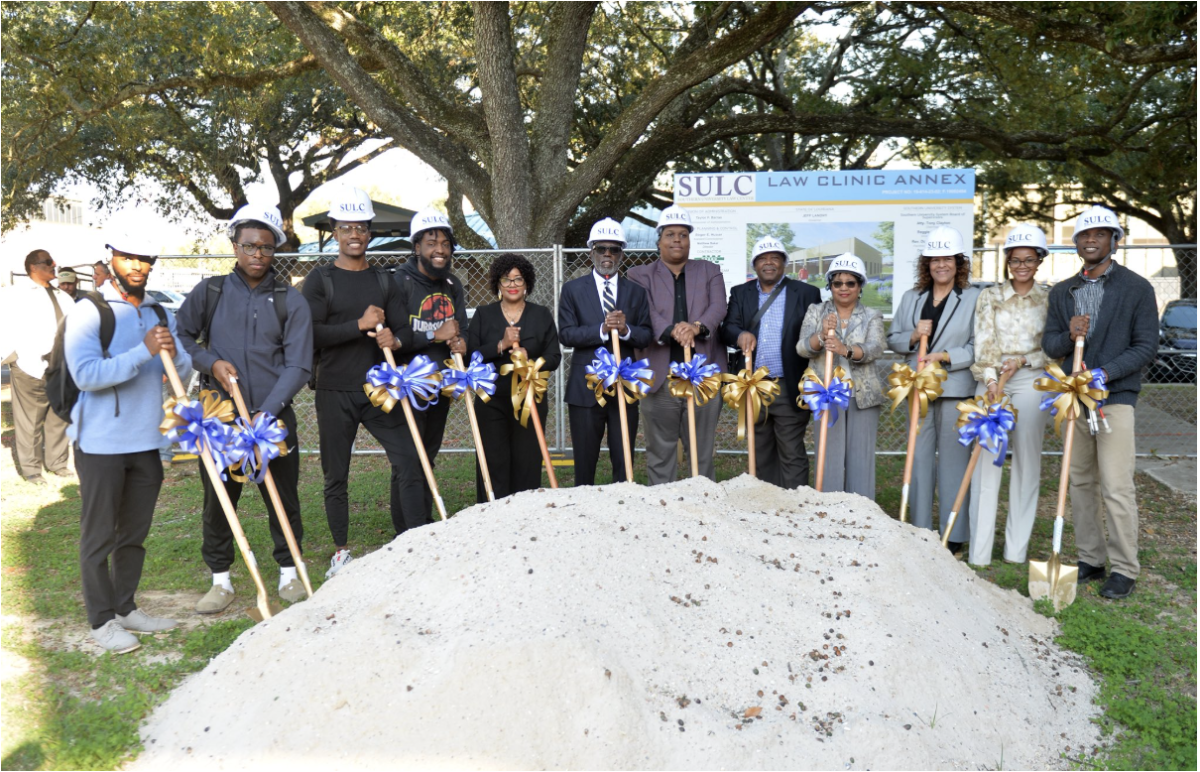Southern University Law Centerembarks on new heights with a yearly increase in a diverse student body andcontinuation of top rankings.
“Southern University law schoolis known for Civil Rights and public interest law,”_ said Rachel Emanuel,director of SULC publications and electronic media.
This institution of higherlearning is housed in A.A. Lenoir Hall, which is named after the first dean ofthe original School of Law. The Law Center occupies 85,000 square feet.
“I came here with a passion tohelp the school move to the next level and one of the things that I wanted todo is place our students in a better position to increase our bar passage,”said SULC Chancellor Freddie Pitcher Jr., an alumnus of the law center.
The Louisiana Bar Exam is athree-day essay exam. Louisiana, the nation’s only civil-law state, does notuse the Multistate Bar Exam (the MBE). Instead, Louisiana tests nine separateareas, including five code sections testing on the Louisiana Civil Code and theLouisiana Code of Civil Procedure. A passing score on the Louisiana Bar Exam is70 percent.
“Our statistics overall have notbeen good for our first time (exam) takers. However, we do emphasize the factthat within one year of graduation practically 80 percent of our students passthe bar,” Pitcher said. “So generally they’re taking the bar on the average oftwo times. I’m trying to make sure that our bar passage gets up as high as wecould possibly take it and I think were on the verge of doing that.”
The law school is fullyaccredited by the American Bar Association, the Supreme Court of Louisiana andthe Commission of Colleges and schools. It is approved also by the VeteransAdministration for the training of eligible veterans.
A student with full-time statusgenerally can complete a 96-hour curriculum within three years. A part-timestudent must enroll for at least eight credit hours per semester to receiveresidency credit. The program of study requires a minimum of eight regularsemesters in residence.
Tuition for Louisiana residentsis $5,546 (maximum) per year.
Fees and tuition forout-of-state students are about $10,200 per year.
“We provide opportunity for notonly just African-Americans but for others who have been disadvantaged. One ofthe biggest advantages that we have is the bargain that we provide,” Pitchersaid of the low costs.
The 2003 entering class of177(162 full time and 15 (part-time) was one of the largest in the Law Center’shistory, representing a 25 percent increase from fall 2002. The number ofapplications received for fall 2003 admission increased by 39.9 percent overfall 2002 and the fall 2004 admission applications numbered 1,358, a 35 percentincrease over the prior year. The present student body stands at 439,including, 177 first-year students, 126 second-year students, and 136third-year students. The law school is 63 percent black, 36 percent white, and1 percent other.
“We pride ourselves in ourdiversity. To have African-Americans and Caucasians and Asian students heretogether-that’s the same group of people who will be practicing law after theyleave here together. So it makes for a better attorney.”
Eight-five percent of black attorneyspracticing in Louisiana are alumni of the Law Center. Eight percent of itsgraduates currently serve as legislatures in the state.
The law school was in the 1999edition of the Women’s Guide to Law School where it was deemed No. 1 amongstaccredited law schools for “women friendliness.” It also placed in the top 10among law schools for competitiveness diverse faculty and student body in the2000 edition of The Princeton Review: The Best Law School. The Law schoolranked third among institutions awarding law degrees in African Americans BlackIssues in Higher Education (2000).
“To come to (the) Southern LawCenter means that you will have an opportunity to compete at any level you wantto. All you have to do is come in and put in the effort and you can realizewhat your dreams are.”




